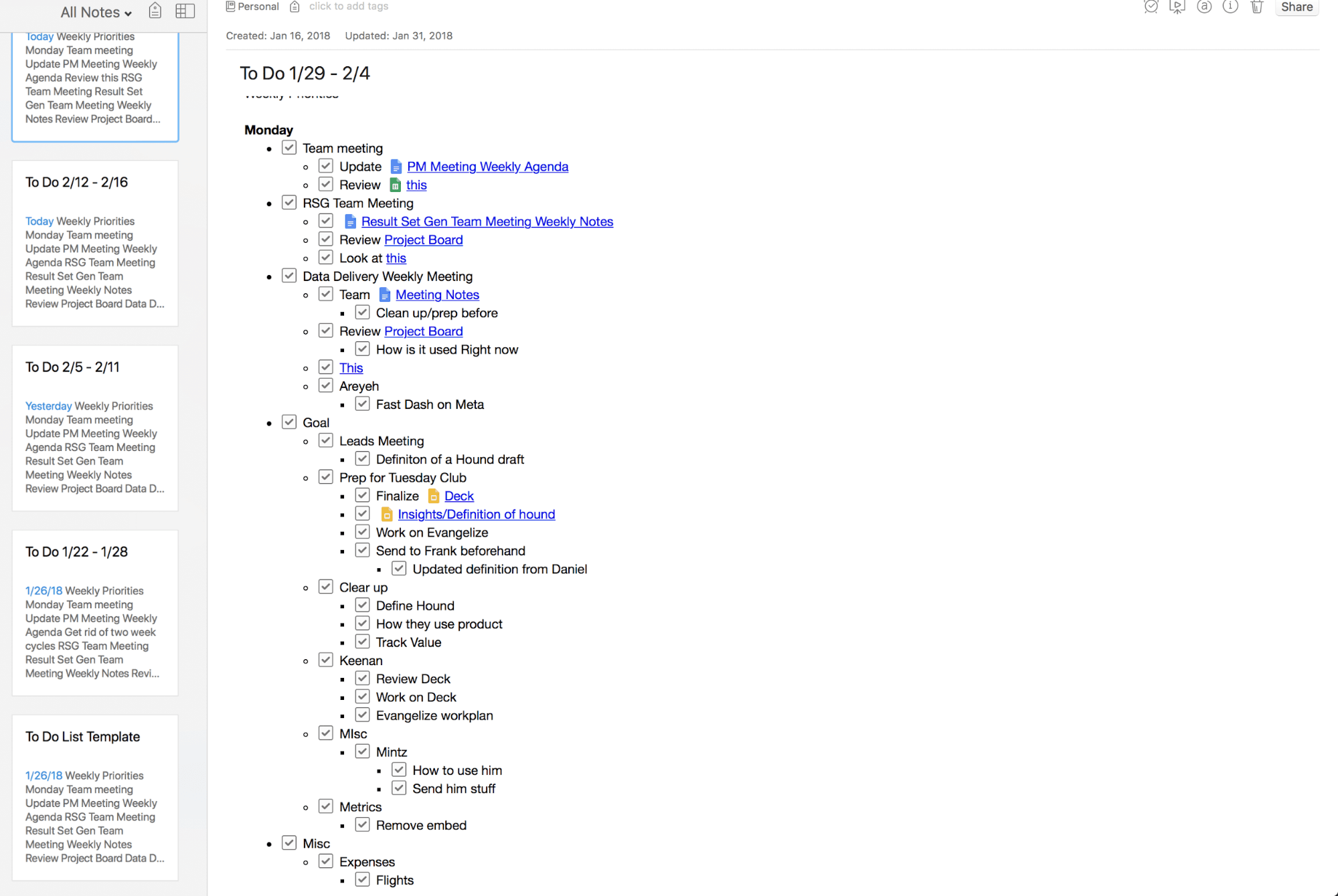How I PM: Andrew Wynn, Product Manager at Looker and formerly Instacart
Andrew Wynn has led product teams at Instacart and Looker. This is how he product manages.
Andrew Wynn’s path to product management isn’t your typical story. After spending two years working on food security in Senegal with the Peace Corps, Andrew was drawn to the innovation that makes the Bay Area so unique. It wasn’t long before Andrew broke into the startup world while running the data and catalog team at Instacart. After witnessing firsthand the strong relationship between analytics, product, and performance, Andrew grew a passion for making data integration a top priority for everyone–even for traditionally non-technical roles.
“Don’t rely on anybody else to get your data.”
Location: San Francisco & Santa Cruz
Current Company: Looker
One word to describe how you work: Focused
Since the time of writing, Andrew has left Looker to start his own company. Andrew’s company, Your.Haus, provides homeowners with routine preventative maintenance service and diagnostics to offer data-driven proactive care and catch issues before they become costly repairs.
How did you get to where you are today?
After college I spent two years as a Peace Corps volunteer in Senegal. There, I was able to take a step back and really evaluate what I wanted to do next. There were so many exciting things happening in San Francisco that I knew I had to land a job here. I started in a Technology Leadership Rotational Program at Levi Strauss & Co. I spent 10 months at Levi’s before realizing that the really exciting work was happening at startups. This was in 2014, around the time on-demand products were really picking up. My roomate at the time worked at Instacart and he persuaded me to join. On the product team, I was responsible for Instacart’s data and catalog, which included product management, technical account management and client service, and product content strategy functions.
After a little over 3 years, I wanted to try my hand at SaaS enterprise products to learn about the differences between B2B and B2C, which brought me to Looker in July of 2017. I had been a Looker customer at Instacart and was blown away by the value of the product—and by its potential. Now, I lead our Business Intelligence Domain, consisting of 4 teams that makeup a majority of our the consumer-facing aspects of our product.
“In a perfect world, data plays a major, but not an exclusive, role in product management.”
How do you describe what you do to your non-tech friends?
Everybody has heard that a company’s most valuable resource is its people; I see Product Management as being investor of those resources. Ultimately, PMs look at all of the potential projects engineering teams could work on and analyze which are best for the company’s current needs—and then make sure they get done well.
What product/app can’t you live without?
I use Evernote to manage my workflow. I have a weekly template with recurring tasks that I copy a few weeks in advance and then can add items as needed. It’s probably really inefficient compared with other products, but it’s a system that works for me.
Andrew’s to-do list workflow in Evernote.

What are some processes you actually love?
Other than my weird to-do list process? I’m pretty process-oriented for my own work but try not to impose that on others who might not work well within certain constraints. I care less about what the format is but I find that having a uniform template across teams for these critical artifacts makes it a lot easier to quickly assimilate information. This reduces switching costs and makes things predictable in a world of ever changing and growing teams and priorities.
“One process I do insist upon is a shared roadmap and product requirements format.”
What metrics/KPIs are you measured on?
At Looker, we have some key metrics that relate to the company’s strategic annual goals. It’s our job to tilt the product in order to drive these specific KPIs. Outside of those focused KPIs, I’m measured on product engagement and retention metrics as well as some harder-to-quantify things like customer satisfaction and execution speed.
What’s the best thing you’ve read to learn how to be better at your job?
The classic tech-focused business-book like High Output Management by Andy Grove, and Innovator’s Dilemma by Clayton Christensen, are very valuable but I also learn a lot reading biographies. Great biographies help show me what to do, and not to do, using real-life examples. The Everything Store was very instructive and Titan: The Life of John D. Rockefeller, Sr. stands out as I found many parallels between the rapid growth of Silicon Valley today with the oil rush of the 19th century.
For product specific resources, First Round Capital and Brett Berson’s team for put together an amazing repository of resources on First Round Review.
What role do you think data has in product management?
In a perfect world, data plays a major, but not an exclusive, role in product management. What I see in most companies, however, is that there is still an opportunity to use data more effectively—even at Looker. As Kelvin said, “If you can not measure it, you can not improve it.”
What’s the best advice you’ve ever received on how to be a PM?
Don’t rely on anybody else to get your data.
Product Management has shifted from a more technical role (eg. former engineers) to a more businessy role (MBAs/consultants) and PMs have lost the skills to access and analyze the data that’s key to them. Often, companies try to compensate with analysts but rarely (if ever) does this work. A good PM should be asking questions of their data: for every answer an analyst brings back, a good PM should have 10 more questions. The best PMs, either through their skills, analysts or tools, are able to constantly and iteratively ask questions of the vast amount of data available. This means they are able to make better decisions faster, learn and solve product problems more effectively, and are rarely caught off guard by unexpected outcomes.
“By saying yes to something, you saying no to lots of other things. Make sure you deeply understand all the no’s before committing to the yes.”
Fill in the blank: I’d love to learn how (insert name of awesome PM)_ manages products.
Whoever is in charge of the Explore feature on Instagram. How do they get me to spend so much time looking at memes?

Cara Harshman
Former Managing Editor, Amplitude
Cara was formerly the Managing Editor at Amplitude. Before joining this crew of super-passionate, smart individuals, she wrote and spoke a lot about A/B testing and personalization at Optimizely. She has spoken at MozCon, CTA Conference, Opticon, and Learn Inbound.
More from Cara




